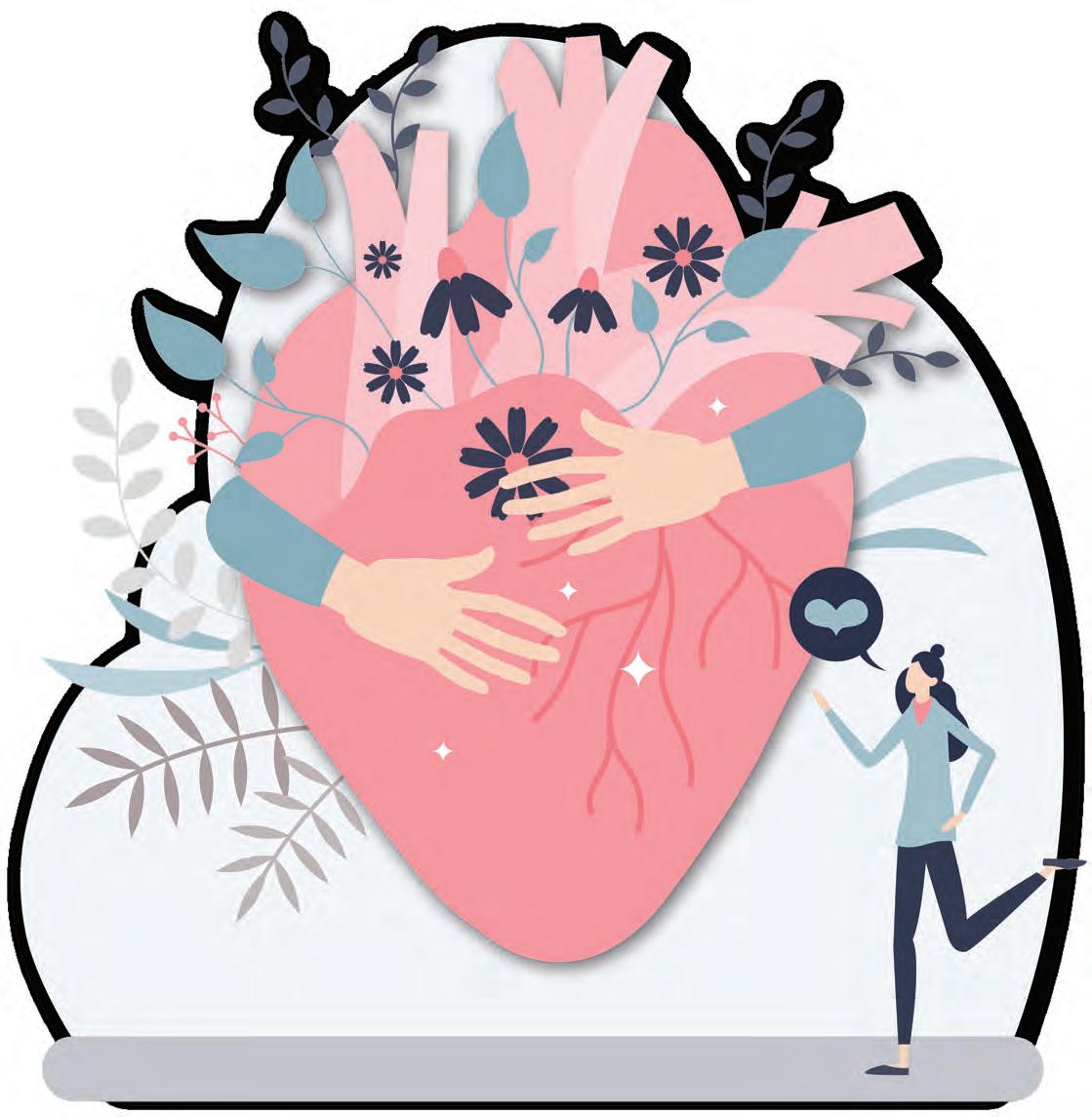
2 minute read
love your heart
nutrients to support cardiovascular health

Advertisement
February is American Heart Month, and a good time to take inventory of heart health. Heart disease is the leading cause of death for both men and women in the United States. A healthy diet rich in plants and fiber, regular exercise, and stress management are the keys to keeping your ticker in good shape.
Supplements may also help you to reduce your risk of cardiovascular diseases. Learn about the hearthealthy vitamins and nutrients you may want to consider adding to your regimen with this helpful chart.
Vitamins & Nutrients How they help your heart
Coenzyme Q10 (CoQ10) Recharges energy production in cells, especially heart cells that produce more energy than any other organ in the body.
Magnesium
Helps widen and relax blood vessels so the heart can pump blood more easily. Adequate magnesium levels are linked to lower blood pressure.
Omega 3s (Fish Oil)
Vitamin C
Vitamin D

Vitamin K
Curcumin
Garlic
Resveratrol
Helps reduce inflammation, blood pressure, and triglyceride levels. People with the lowest levels of these essential fatty acids are at the highest risk for sudden heart attacks.
Low vitamin C levels have been linked to heart failure in both men and women. Adequate intake may help lower your risk.
Low concentrations of vitamin D circulating in the blood are considered an independent risk factor for cardiovascular events, including strokes and sudden cardiac deaths. Make sure you’re getting enough.
Vitamin K, especially K2, keeps calcium in your bones and out of the arteries where it doesn’t belong.
A powerful anti-inflammatory supplement, curcumin offers cardiovascular protective benefits and may help to reduce oxidized LDL cholesterol.
Both garlic and aged garlic extract help reduce inflammation in blood-vessel lining, and they have blood pressure- and cholesterol-lowering effects.
Found in red wine and dark grapes, resveratrol helps to protect arteries from blood clots, and may reduce blood pressure. It blocks inflammatory enzymes that can trigger heart disease and keeps certain molecules from sticking to artery walls.
SELECTED SOURCES “Curcumin: a review of its effects on human health” by S.J. Hewlings and D.S. Kalman, Foods, 10/17 • “The effect of aged garlic extract on blood pressure and other cardiovascular risk factors in uncontrolled hypertensives . . .” by K. Ried et al., Integrated Blood Pressure Control, 1/27/16 • “Fish and omega-3 fatty acids,” 11/1/21; “Role of curcumin on inflammation” by Anberitha Matthews, 1/10/19, American Heart Association, www.Heart.org • “Magnesium and blood pressure: A physiology-based approach” by J. Schutten et al, Advances in Chronic Kidney Disease, 5/18 • “Nutritional recommendations for cardiovascular disease program” by S. Eilat-Adar et al., Nutrients, 9/13 • “Resveratrol and vascular function” by H. Li et al., 4/30/19; “Vitamin D and cardiovascular disease, with emphasis on hypertension, atherosclerosis, and heart failure” by N. Latic and R. Erben, 9/4/20, International Journal of Molecular Sciences • “Vitamin C and cardiovascular disease: An update” by M.B. Morelli et al., Antioxidants (Basel), 12/20










